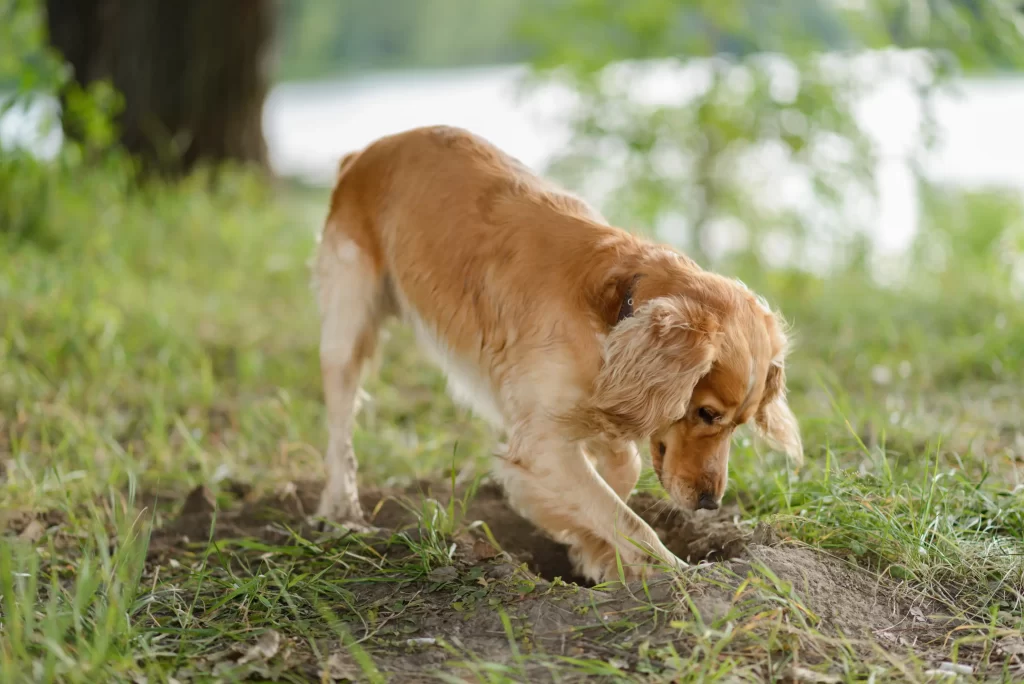Why Do Dogs Dig In Their Beds?
By Israel O
For dog lovers, observing their pets digging in their beds can raise questions about why they engage in this behavior. It is critical to understand the motivations behind this expected behavior so we can give our furry friends the best care. Dogs’ tendency to dig in their beds can be attributed to their natural instincts, originating from their ancestry as descendants of wild dogs.
While the need to dig for survival has diminished in domesticated dogs, the behavior remains an innate instinct. Multiple reasons contribute to dogs’ bed-digging behavior. Apart from the natural instinct to dig, dogs usually scratch their beds to mark their territory. This establishes a sense of ownership over their space.

Additionally, dogs dig in their beds to create a comfortable and secure environment, reflecting their ancestral instinct to build cozy nests for safety and protection. This behavior helps them release pent-up energy and settle for restful sleep, mirroring their wild counterparts’ need for a secure den. Several factors influence a dog’s tendency to scratch in their bed. Certain breeds, such as Terriers, basset hounds, and dachshunds, have a historical predisposition for digging due to their roles in hunting small game. Age also plays a role, with puppies and adolescent dogs exhibiting more exploratory behaviors, including bed-digging, as a part of their playful nature.
Moreover, health issues, including allergies, arthritis, and skin irritations, can manifest as excessive digging. In some cases, the behavior might signal a natural instinct in female dogs to prepare their bed for giving birth. Monitoring changes in a dog’s digging patterns is essential to identify any potential underlying health concerns.

Addressing the bed-digging behavior involves recognizing its root cause. By observing the dog’s behavior closely, pet owners can identify triggers, such as changes in temperature, anxiety, or discomfort. Providing designated digging areas, offering positive reinforcement, and ensuring adequate mental and physical stimulation can help redirect the dog’s behavior effectively.
Creating a comfortable environment is vital in discouraging excessive digging. Choosing an appropriate-sized bed and inspecting it regularly for pests or lodged toys can promote a cozy resting space for the dog. For cases where bed-digging becomes compulsive or excessive, consulting a professional behaviorist or veterinarian is recommended to address any underlying concerns.
Understanding the reasons behind a dog’s digging behavior and implementing appropriate strategies can foster a healthy and nurturing environment for the beloved pet, ensuring their overall well-being and comfort.
